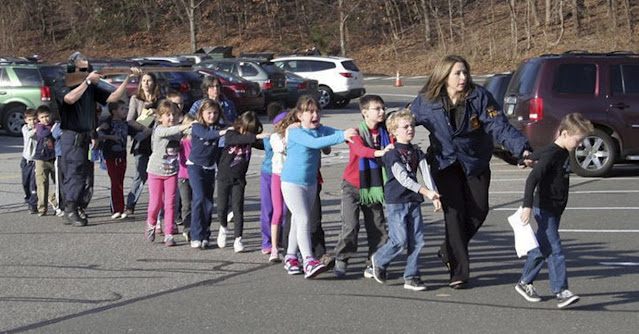Guns and poses
I grew up with guns. My dad had a Winchester Model 97 12 gauge broken down in its canvas and leather case in the basement. I spent most of my summers with my mother who cared for her mother who lived on a farm with two bachelor sons. A short distance from the kitchen door was a 3-unit building. One unit housed the cream separator. The middle unit was where the stoves that heated the dining room and living room were stored during the warm months of the year. The third unit was the wash house. It contained a stove for heating water, a washing machine, and a large galvanized tub for bathing. That unit was closest to the kitchen door.
High on the wall of the bath house was a shelf that held boxes of shotgun shells and rifle ammunition, and above it was a rack that held a 12 gauge Winchester pump and a .22 Mossberg bolt action. Bathing was done in the aroma of laundry soap and gunpowder. The bath house was closest to the barnyard gate so that if you heard a skunk or coon raiding the chickens or a fox taking a baby pig, you could quickly grab your weapon of choice on your way to dispatch the critter. Such actions happened fairly often.
Guns were regarded as just tools, like saws and hammers and fence wire cutters. You kept them clean and oiled and unloaded. You used them to maintain the farm, which included an occasional hunt for what we now call game. Hunting was not an outdoor sport by the people around me then. It was part of providing food. That included the elimination of predators of the food animals.
When I was a child in Illinois, deer had been eliminated from the land by over-hunting and lack of habitat. Hunting was therefore limited to small animals, rabbits, squirrels, and wild fowl. It was a matter of providing food and some variety in the diet. Many farms then had hedge fences. Those fences were great habitat for game animals. Game animals were part of the food production. Although they were not referred to as game. The rabbbits, the quail, and an occasional pheasant stretched the food budget. They were not the objects of a sport. The people around me regarded those who hunted for the purpose of killing as perverted and demented. Trophy hunting was aberrant. People who had mounted animal heads on their walls or preserved pheasants on their shelves were regarded with ridicule and disdain.
When I was 12, I got a Springfield .410 for Christmas from my brother. Thus, I became a gun owner with the capability of contributing to the food supply. And I became responsible for a gun.
My next ownership came years later when working in the sports department of a newspaper. I joined a group that in the closing days of summer would register to build duck blinds in the chutes and sloughs of the Mississippi River. I bought a used Winchester Model 12 for the duck season. Men from the group would get up before sunrise and boat to the blinds, and often get our limits shortly after the sun came up on the days there were ducks to be had. Duck hunting was almost a religious ritual in terms of the preparation and rules for the hunt. We took the ducks to our homes to clean for our freezers and stoves. However, one of our members owned a riverside restaurant that featured game on its menu. At the end of duck season, he would prepare a banquet for the families of the hunters with some of our harvest to celebrate the season. He had a recipe for roasting wild duck that was renowned throughout the region. The occasion was a duck thanksgiving.
During our hunts some of the men took thermos bottles of steaming coffee which they would lace with brandy. After sitting in a duck blind on a cold river and retrieving ducks from the frigid waters, the enhanced coffee was a welcome way to warm up stiff and cold bodies. One morning as we were walking back to where our cars were parked, a 16-year-old son of one of the hunters seemed to have gotten into the coffee. He was careless in the way he was handling his gun so that the muzzle was pointing every which way. One of the men said, "Be careful where you're pointing that gun." The kid stopped, pointed his gun in the man's general direction, and said, "No one tells me what to do." In an instant, three men were holding their guns on the kid. Even the retrieving dogs were on alert. The boys father walked up, said, "I'd better take charge of that," and took the shotgun away from the boy.
Our duck thanksgiving was kind of a doleful affair that year. It was clear to us that our group was disbanding. That incident with the boy had made us question the ritual of the hunt in our day and age.
 |
| M2 carbine |
